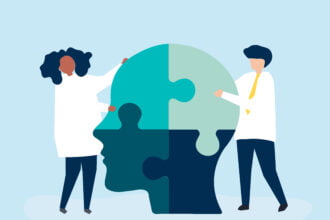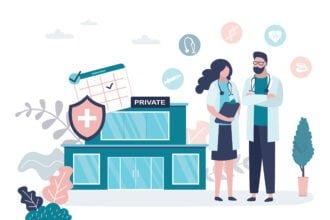 Yup, it’s still Minority Mental Health Awareness Month.
Yup, it’s still Minority Mental Health Awareness Month.
In fact, I stand corrected. It is the Bebe Moore Campbell National Minority Mental Health Awareness Month.
 Yup, it’s still Minority Mental Health Awareness Month.
Yup, it’s still Minority Mental Health Awareness Month.
In fact, I stand corrected. It is the Bebe Moore Campbell National Minority Mental Health Awareness Month.
And I have a sneaking suspicion that you’ve forgotten that–that to you it’s Cord Blood Awareness Blog Month, or International Group B Strep Awareness Month–or even Eye Injury Prevention Month–but within all those months you’ve forgotten about Minority Mental Health’s existence.
Which is just par for the course.
But it’s a deadly serious issue–and maybe if we all knew a little bit more about it, we’d be able to keep it in our heads just a wee bit longer.
It’s hard to know where to start.
Maybe with this treasure: According to the American Psychiatric Association, one out of every three African-Americans who needs mental health care actually receives it.
And, apparently once they’ve gotten it, they’re not that thrilled with what they’ve got. The APA also found that, compared to the general population, African-Americans tend to stop treatment early.
Switching sources, the CDC created a chart comparing suicide rates from 2005-2009 among those 10 and older by race/ethnicity and sex.
The grand winner is pretty shocking–and is consistent among gender.
The highest suicide rates were among American Indian/Alaskan Native males–they had 27.61 suicides per 100,000. But their women, too, suicided the more than any other ethnicity, as well, at the rate of 7.87 suicides per 100,000.
[Just as an aside, you may be surprised to learn that non-Hispanic White males 65 and older top the list, with a shocking 32.37 suicides per 100,000. But they’re not the target demographic of this awareness month, so ‘nuf said.]
Moving sources again: The U.S. Department of Health and Human Services Agency for Healthcare Research and Quality (AHRQ) took a look at the percent of adults (meaning those 18 and older–we can dispute that later if we’d like) who received prescription meds for mental health care OR just received counseling in 2008. Comparing Hispanics and Non-Hispanic Whites, the table below looks at the number of individuals per 100 who received mental health care.
Hispanic | Non-Hispanic White | Hispanic/ Non-Hispanic White Ratio | |
|---|---|---|---|
Male | 4.0 | 9.1 | 0.4 |
Female | 6.5 | 18.3 | 0.4 |
Total | 5.2 | 13.9 | 0.4 |
Source: 2010 National Healthcare Disparities Report. Table 17_3_3.2b
I say a lot–but in this case I think the table speaks for itself.
Now–back to those African-Americans, those who weren’t going and getting the mental health care they needed. I found out some discouraging information about what goes on even when they do make the effort to get themselves the care they need.
Psychiatrists have been treating schizophrenia, mania, and sometimes even depression with a new type of antipsychotic medication, called ‘second-generation’ antipsychotics, since these meds arrival in the 1990s. These drugs don’t have some of the scarier side effects of the ‘first-generation’ antipsychotics, particularly a side effect called tardive dyskinesia, where the body makes uncontrolled, repetitive, involuntary, purposeless movements. Really, it’s hard to find a doctor’s office today that uses the old meds.
That’s why I was totally shocked to learn that Herbeck et al wrote in 2004, in”Variations in use of second-generation antipsychotic medication by race among adult psychiatric patients,” over a decade after the original second-generation drug appeared, found that African-American patients were “less likely than white patients to receive second-generation antipsychotic medications.” Standard of care today really is these first-generation antipsychotics–it’s just so hard to imagine doctors offering anything else. But there it is again, two years later–things had apparently not improved. Mallinger et al summarizes his research: “In this sample, blacks were less likely than whites to receive second-generation antipsychotics, demonstrating a persistent gap in the quality of care for patients with schizophrenia.” Quite a gap, indeed.
- Among adolescents, whites are much more likely than blacks or Hispanics to use antidepressants. In fact, whites are more than twice as likely as Hispanic adolescents to use them–and nearly five times as likely as black adolescents. While it is always possible that minorities may have an overall more negative view of adolescent antidepressant use, the facts also tell us that family income, levels of education, and–the kicker in my book–health insurance play into this discrepancy.
- Blacks and Hispanics are less likely than whites to seek treatment for mental health problems. This seems a tricky one to prove but researchers combed through 2001-2004 Medical Expenditure Panel Survey data to try to figure out why minorities do, indeed, seek out mental health services less frequently than whites.The authors of the study (Zuvekas & Fleisman 2008) determined that this discrepancy arose due to “different propensities to interpret emotional symptoms as reflecting one’s mental health and then to seek professional intervention for emotional problems.” This sounded to me as if, in short, whites were kvetches who rushed themselves to the psychotherapists or psychiatrists the minute they felt overwhelmed, but apparently the authors firmly believe that the data reflect underuse by minorities rather than overuse by whites.
- Asian Americans resist using mental health services. The article, Inpatient Stays of Asian Patients with Psychiatric Diagnoses in New York City, actually focuses less on the resistance–and more on what happens as a result of it.
In the study we find that Asian Americans might resist using standard Western mental health services for any number of reasons–stigma, lack of belief in the power of psychotherapy to heal at all, fear of being hospitalized. Truthfully, they sound like the same reasons we’re all afraid of using mental health services. But their fear really keeps them away.
Until it’s too late. Those Asian Americans who do, finally, seek care are the most severely mentally ill. This study by Shin (2009) was done in New York (where, believe me, they’re intimately familiar with mental illness, as it resides on the streets and in the alleyways of the city, seemingly everywhere you look), where he found that the most common disorder among American Asians [remember: these are the ones he sees, the ones who are too sick to stay away anymore] was schizophrenia–a higher number than any other group. Additionally, these Asian schizophrenics spent longer in the hospital than other patients.
It’s a sticky problem. If the minorities who might need the care are reluctant to seek it out, we have a choice problem on top of an availability one. This means that Minority Awareness Month has, like Ben Bernanke, a dual mandate. We need more awareness within the minority community of the benefits of mental health treatment. And we need awareness among the political and economic movers and shakers. In other words, let’s hope this Awareness Month promotes both education and advocacy.









